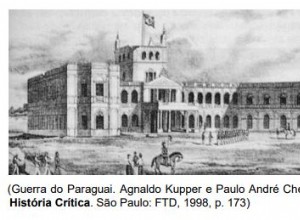Question 01 - Mackenzie 2006 - The three statements below refer to the Paraguayan War (1864-1870).I. The war pitted Paraguay against a military alliance formed by Brazil, Argentina and Uruguay (Triple Alliance), with Brazilians holding the numerical majority in the armies.II. Despite the final victo




